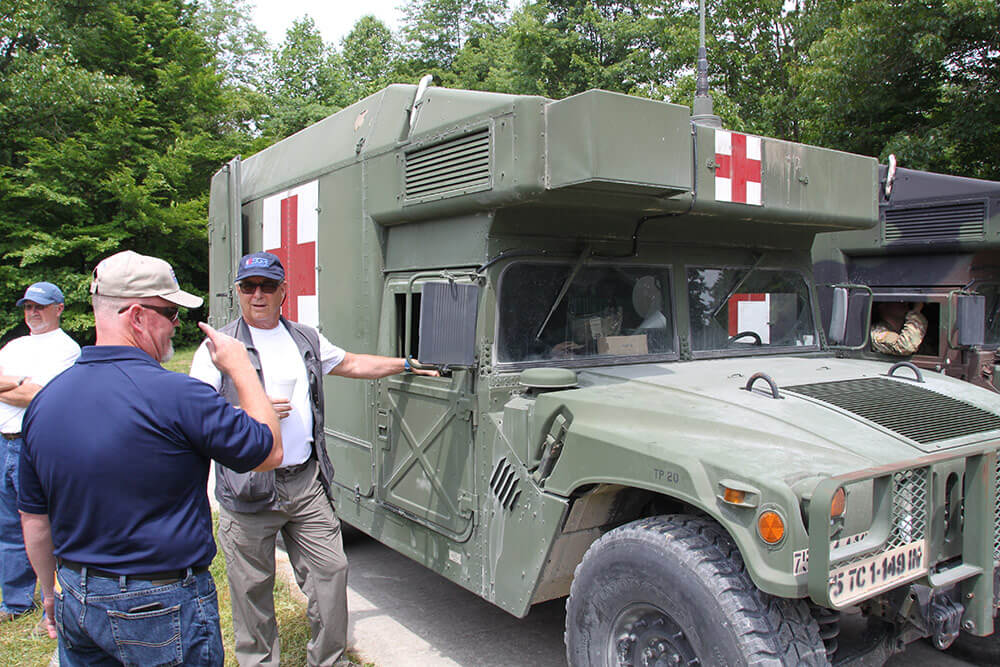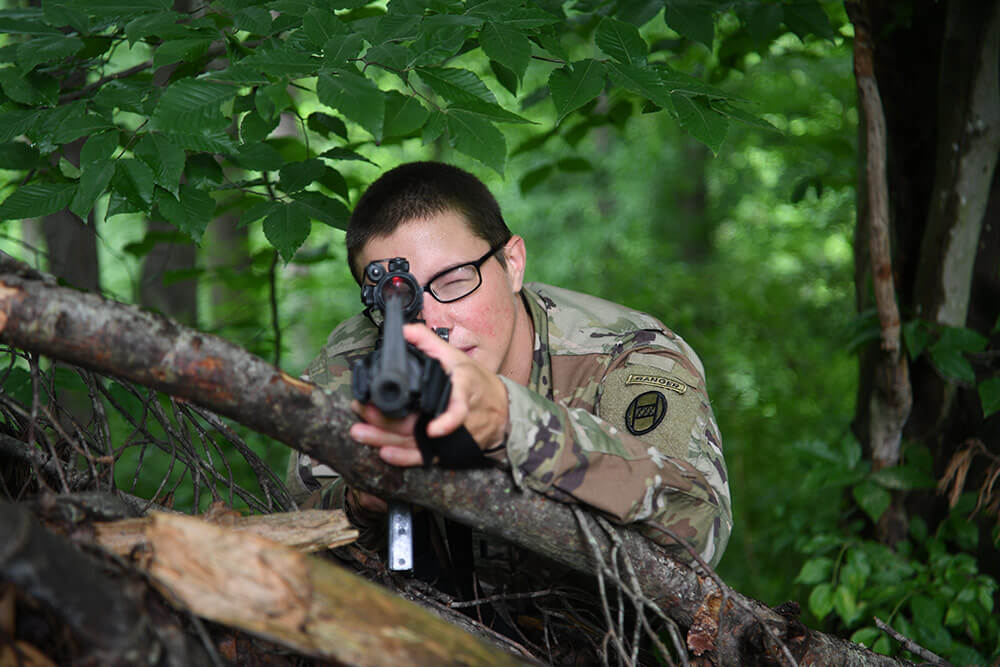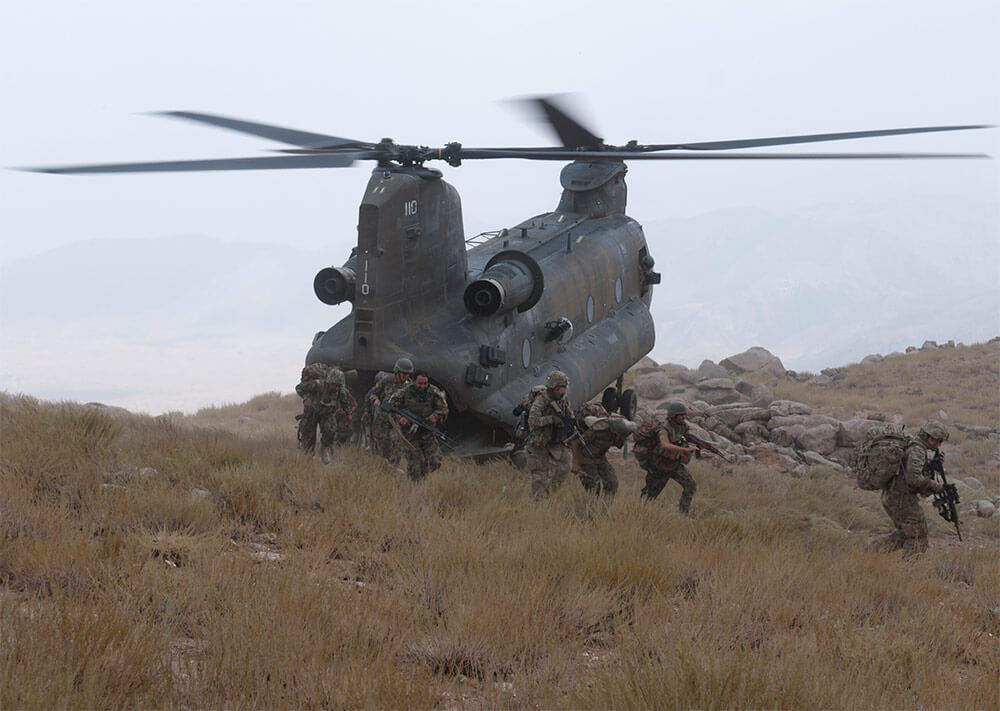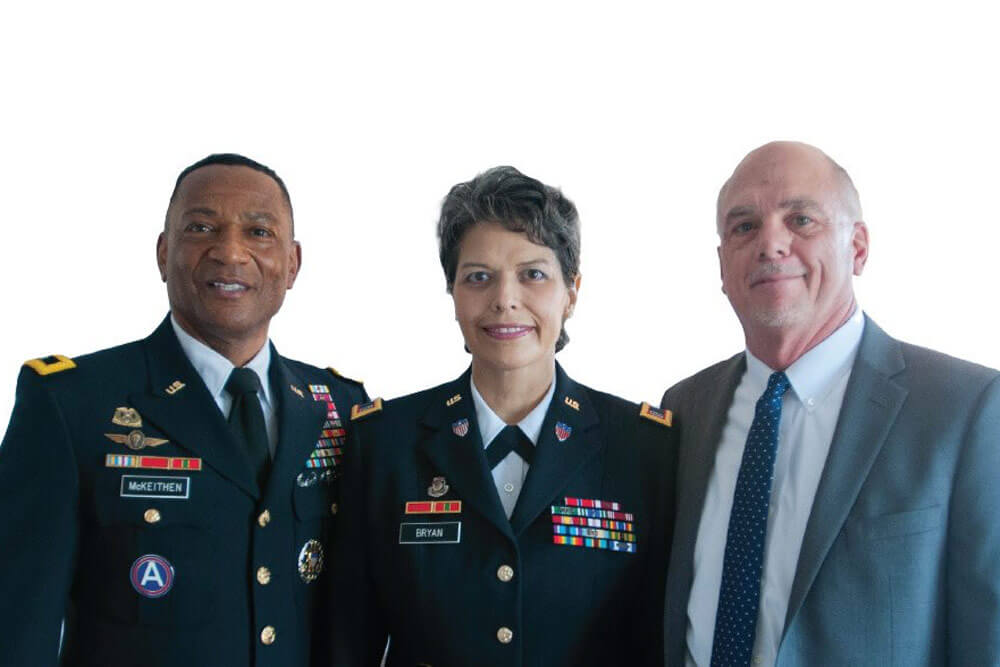The Kentucky Army National Guard is working to strengthen bonds between Soldiers and the citizens of Kentucky’s local communities. Through events like Boss Lift and Operation Immersion, the Kentucky Army National Guard has been inviting residents to experience firsthand what it is like to carry out the duties of a National Guard Soldier.
Employers Take Flight in the Guard
Boss Lift, an annual event hosted by Employer Support of the Guard and Reserve (ESGR), invited employers of Kentucky Guard Soldiers to spend a day working alongside their Soldier-employees while at annual training at Camp Atterbury, Indiana. This year’s Boss Lift included 27 employers from across the State. Transported by UH-60 Black Hawks, the employers were airlifted to Camp Atterbury where they were able to get a bird’s-eye view of what their employees’ “other job” as Guard Soldiers is really about.
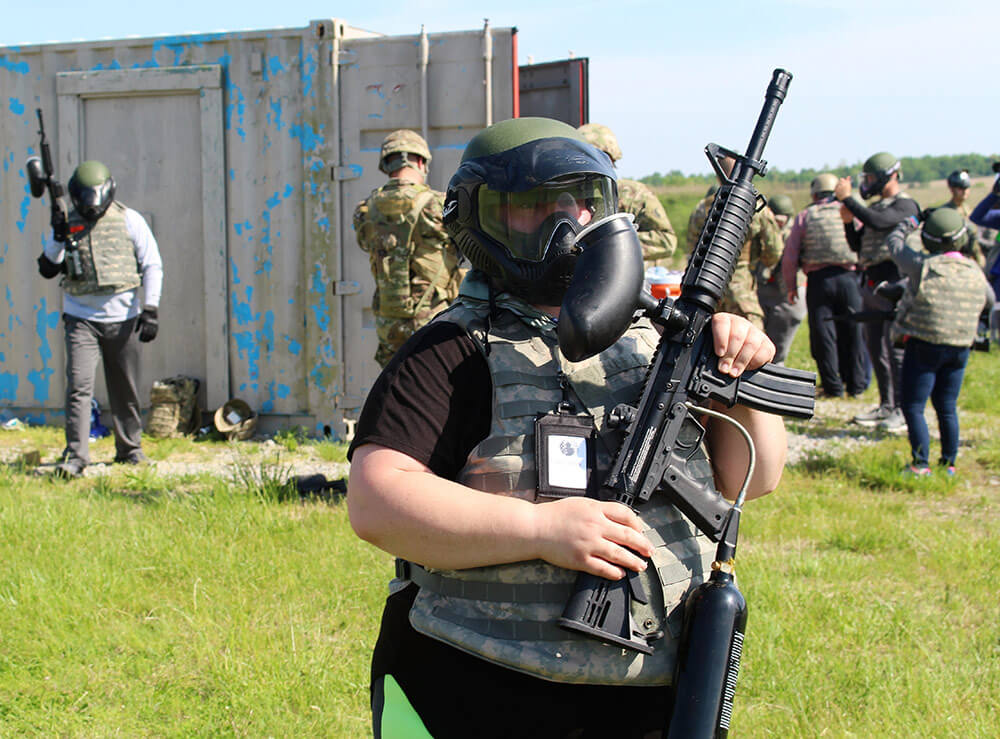
“We sent one aircraft to western Kentucky to Bowling Green; we sent another aircraft down to London, Kentucky, which is in the south. We also had two aircraft that departed from Frankfurt,” explained ESGR State Chair Phillip Miller. “Then we all converged at Camp Atterbury. We planned it well, where everyone [landed] at about the same time and then met up with the unit leadership to begin the day’s activities.”
The goal of the Boss Lift is to foster a deeper level of understanding for civilian employers about what it is that Guard Soldiers do. Maintaining civilian employment is crucial to Guard members’ ability to adequately provide for themselves and their Families. Therefore, creating a positive and proactive relationship between civilian employers, Soldiers and the Guard is a priority for the Kentucky Army National Guard.
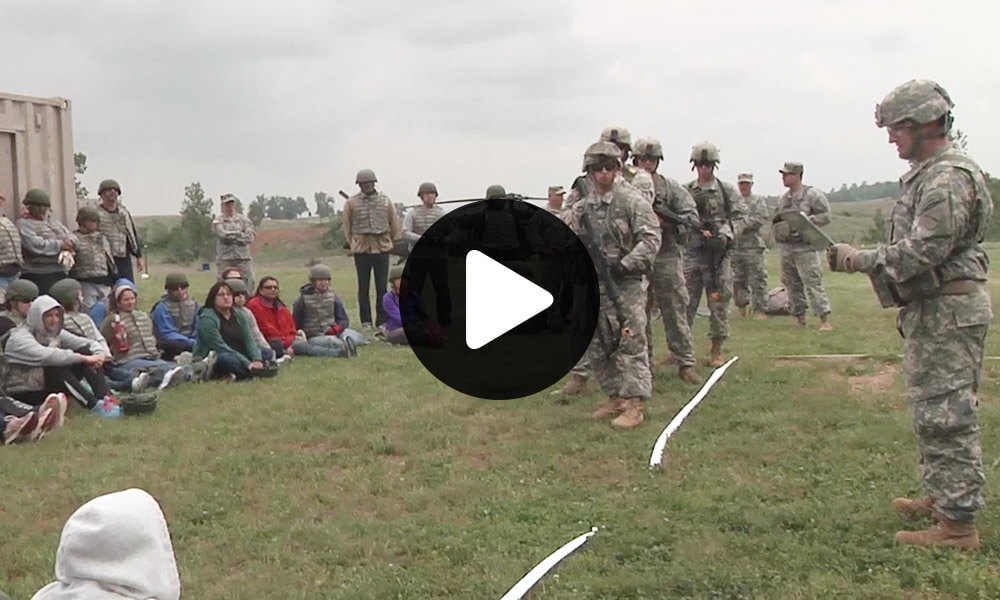
“Community outreach is a line of effort at the highest level of the Kentucky Army National Guard,” explained MAJ Jason Penn, executive officer for the 1st Battalion, 149th Infantry. “This specific program was aimed at promoting that line of effort. It promotes stability within our Guard members. It allows them to be successful Guard members on both the military and civilian side. It also promotes the skills we can provide to Soldiers that they can in turn provide to their civilian employers.”
The event began with an orientation about ESGR and the Kentucky Army National Guard. Afterward, the 1-149th unit operations officer gave a brief overview about the unit, the types of occupational skills Soldiers must possess, the unit’s mission and the types of training they conduct.
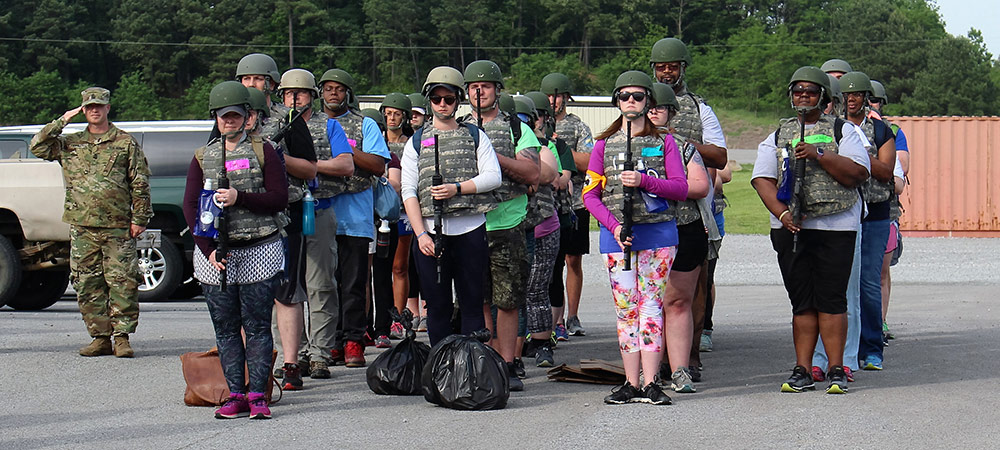
“We expressed our thanks to [the employers] for sharing their [Guard] Soldier-employees with us and for taking their time off to show their support for the Soldiers,” Miller said. “We are very appreciative of them for allowing our Soldiers time off from work to conduct their training, whether it’s on the weekend, or for the two or three weeks of annual training. We absolutely could not sustain the force without the support and the commitment of the civilian employers.”
Following the orientation, employers observed Soldiers training. Employers witnessed Soldiers assemble and disassemble weapons, operate High Mobility Multipurpose Wheeled Vehicles (HMMWV) and conduct a medical operation.
The day of training proved to be eye-opening for the civilian employers. The event showcased the wide range of skills and level of dedication Soldiers put into their military careers – skills and dedication that can be translated to civilian work.
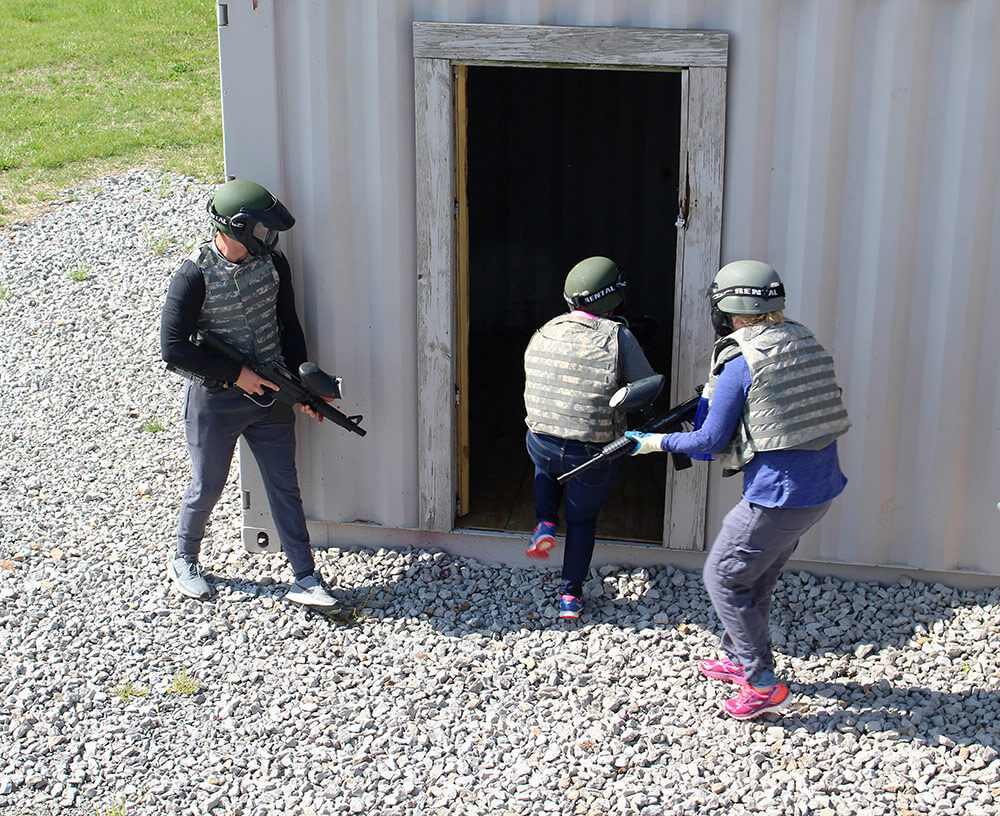
“The pride you could see on the civilian employers’ faces when they saw what their Soldier did and what they were trained on was great to [witness],” MAJ Penn said. “Everyone had a grin on their face all day long and they started to realize some of the skillsets that we provide. There was a look of surprise about what it is we actually do in the Kentucky National Guard.”
“When you have a 19- or 20-year-old crew chief who is responsible for a $15 million aircraft – and we make sure the employers know that – it speaks volumes about the faith and trust that this Nation places in its service members,” said Miller. “The employers were all smiles and all extremely enthusiastic. I’ve heard from several of them wanting to know what more they can do to help.”
Miller went on to comment on what he said was a standout moment – watching employers eat an MRE.
“Something that is always a highlight of Boss Lift is when we see to it that for lunch [employers] have an MRE,” he noted. “The troops are able to teach them how to use the heating elements that come with it. I don’t think [the employers] ate everything, but [they got enough].”
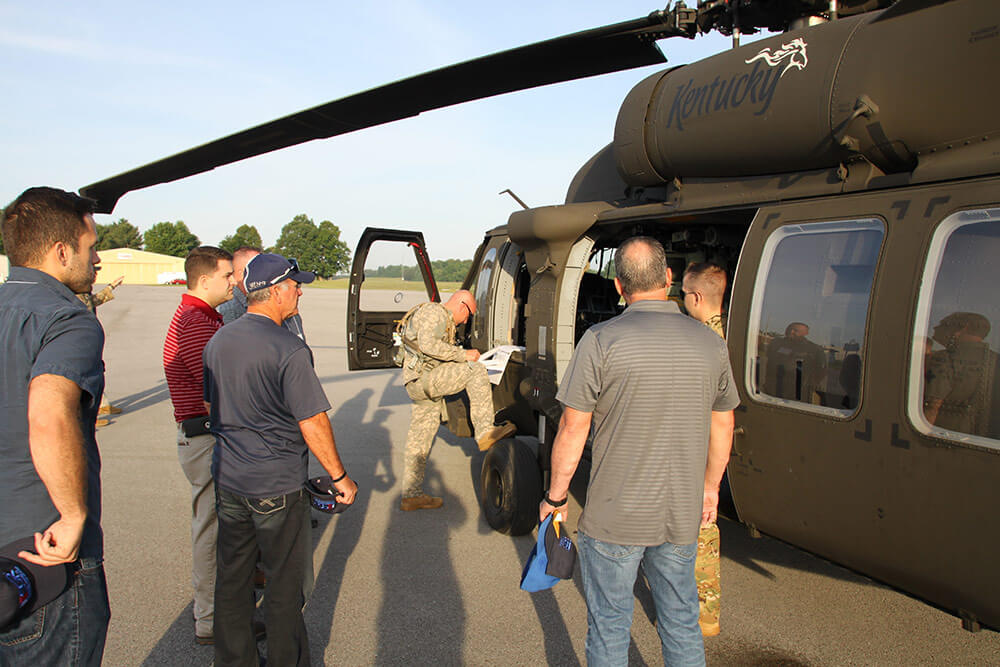
CSM Benzie Timberlake, 1st Battalion, 149th Infantry, felt honored and thankful to have his employer attend this year’s Boss Lift.
“I’ve worked for the same employer for 17 years and they really did not have any clue as to what I do [in the Guard],” said CSM Timberlake. “They didn’t know what a command sergeant major was. They don’t really understand the workings of an infantry battalion, but they’ve always supported me. I wouldn’t be successful in my civilian job without the unwavering support of my employer. And now their eyes are opened even more to my abilities and what I can actually provide for them.”
Immersed in the Guard
Kentucky Army National Guard’s second outreach event from this past spring, Operation Immersion, also built upon the idea of fostering stronger relationships between Soldiers and their communities.
Held at the Wendell H. Ford Regional Training Center in Greenville, Kentucky, the week-long event gave approximately 40 civilian professionals the opportunity to be immersed into the roles of National Guard Soldiers.
The event was presented by the Kentucky Cabinet for Health and Family Services, the Kentucky Department for Behavioral Health, Developmental and Intellectual Disabilities and the Kentucky National Guard.
With its participants all working in the fields of psychology, social work and counseling, the event focused on engagement with professionals who may have cause to encounter Soldiers and/or Veterans in the course of their work. The week began with classroom workshops taught by subject matter experts and then transitioned into hands-on military exercises taught by Kentucky Army National Guard leaders.
By spending the entire week sleeping in barracks, waking up early for physical training (PT) and eating MREs, the participants were able to gain a true understanding of what Soldiers experience on duty.
Attendees rode on UH-60 Black Hawk helicopters and participated in mock combat situations including obstacle courses, room clearing with paintball guns, HMMWV rollover training and buddy rushes.
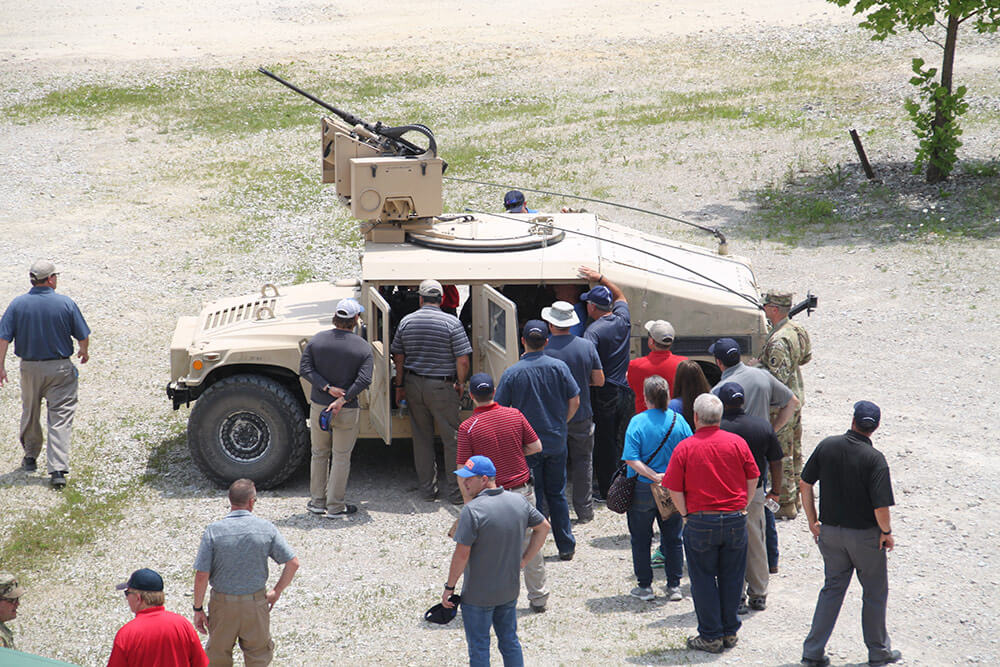
“After [the attendees finished] an experience or training time, we would pause for a moment and ask them how they could take what they learned and apply it to their practice with current service members,” said CPT Philip Majcher, chaplain for the Kentucky Army National Guard.
CPT Majcher explained to the attendees what his role as a chaplain entailed; he then created a mock environment where the attendees were his Soldiers and he was their chaplain.
“There was a point in the training towards the end where they assaulted a building with paintball guns,” CPT Majcher continued. “We went into the building, assaulted it and came out.”
He recalled a counselor who realized from that exercise that she needed to make a change to better serve her military clients.
“She realized how important it is for Soldiers to know where the exit is,” explained CPT Majcher. “Her office was set up in a way that her desk is facing towards the exit and her client’s chairs have their backs to the door. She realized that she could make service members more comfortable if she were to rotate her office so that the chairs are not to the back of the door and service members can see the exit, see who is coming in and have a clear line to get out. I thought that was a phenomenal breakthrough.”
By encouraging dialogue and understanding between Soldiers and counselors, Operation Immersion supports the creation of a safe space for Soldiers to seek help should they need it.
“It can help the Soldiers overcome the stigma of getting help,” said CPT Majcher. “If they can go outside the military and have someone say, ‘I understand a little bit of that,’ I think that can help Soldiers to lose some of the guards they have up about getting help.”
Immersing community members into the realities of Kentucky National Guard Soldiers resulted in outcomes that could have long-lasting impacts on counselor and Soldier relationships.
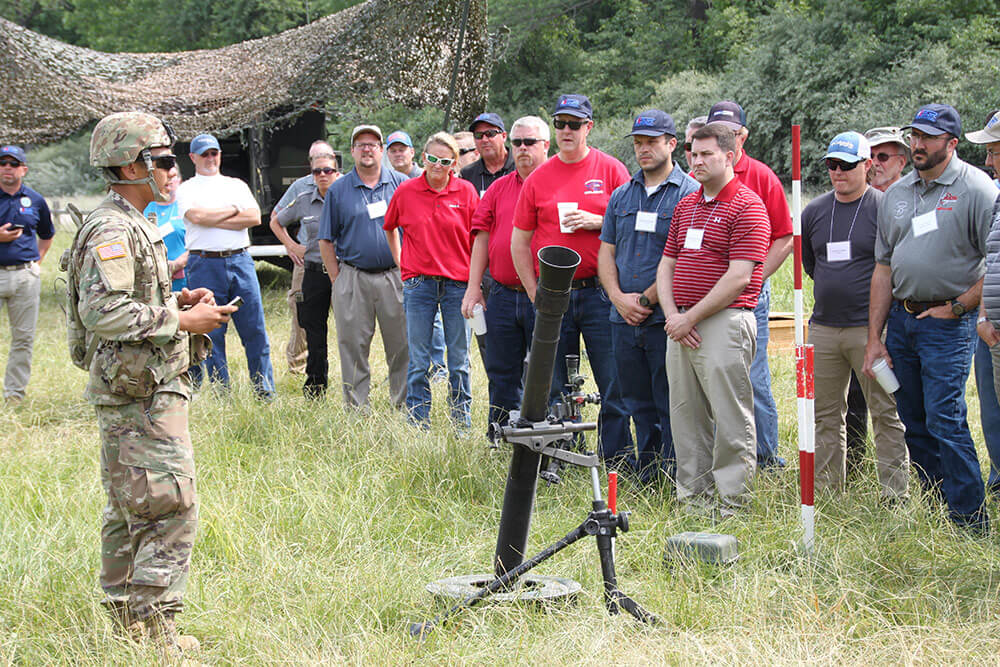
CPT Majcher explained, “For [the counselors] to have this experience and implement what they’ve learned with service members, I think that will increase their camaraderie, relationship building and sincerity with Veterans and Soldiers.”
The Boss Lift and Operation Immersion events served to fortify bonds and highlight the importance of continuing efforts that nurture relationships between Guard Soldiers and local community members.
“We cannot be successful in our mission as the Kentucky Army National Guard without the support of the community,” said MAJ Penn. “To build those bridges and foster those relationships – that’s the intent and purpose behind these events.”
By Staff Writer Tatyana White-Jenkins
Learn more about some of the benefits from joining the Army National Guard in this article:
